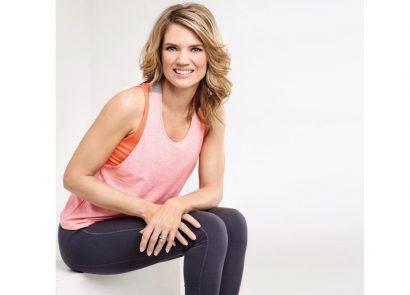Whether you’re after a healthy mind, bank balance or relationships, we’ve got all your wellbeing needs covered this month
Boundaries are completely natural and automatic. When the body hits its limit, we feel physical pain. When the heart or emotional system hits its limit, we feel anger, sadness, or hurt. We have learned to suppress these feelings and the result of this ‘boundary blindness’ is that our natural boundaries are frequently getting crossed – and, most of the time, we don’t even know it’s happening. Ever feel angry, resentful, shut down, or helpless? These are good warning signs that something is off. Having our limits exceeded from time to time in our lives is inevitable. However, this doesn’t mean we’re powerless to create a life that is better.
Building blocks
Locating and declaring our boundaries allows us to take care of our own needs – physical, emotional, energetic, mental, and material. The words we use to set a boundary are very important. A boundary is not a demand, such as, “You can’t talk to me that way!”. It’s also not an ultimatum, such as, “If you don’t stop talking to me that way, I’ll leave you!”. A boundary is a statement of our needs and limits. We make it clear what we will do to take care of ourselves, rather than make a demand about the other person’s behaviour. The basic format is, “If you do X, I will take care of myself by doing Y.” It’s hard for us when the boundaries we want to set go against cultural or familial norms. If you come from a culture or family in which there are few boundaries, you probably fear that your family will say you’re out of line if you try to set one. You might find that other members of your family are appalled that you’ve broken the ‘code’ by demanding better behaviour from your brother or choosing not to come home for the holidays. I’m not denying it – you are likely to rock a number of boats. But there is no other choice. Putting yourself in a virtual straitjacket and not living the life that was meant for you? That cannot be your fate.
Taking stock
In this exercise, you’ll write an inventory of boundaries that you easily hold, as well as how you hold each one. You can do this exercise either on paper or on a device of your choice.
1. Think of at least five boundaries you’ve set in your life, easily and effortlessly, and how you maintain them.
- Here are several examples to help you make your own list:
- I have a boundary against letting strangers into the house.
- How I keep it: I lock the doors and windows.
- I’ve a boundary against getting sick.
- How I keep it: I refuse to eat foods that cause a negative reaction in my body, I avoid cats since I’m allergic, and I don’t take recreational drugs.
Take your boundary inventory
- I have a boundary against getting my bag stolen.
- How I keep it: I keep my bag closed and stay aware of its whereabouts at all times.
- I have a boundary against my kids staying up too late.
- How I keep it: I require that they go to bed at a decent hour.
2. This time, take an inventory of the boundaries you’ve set in each of the following areas of your life:
- Between you and your significant other, if you have one (you may have a boundary ` against cheating on each other).
- Between you and your children, if you have them (for example, you have probably given your kids a curfew).
- Between you and your parents, if they’re still living.
- Between you and your siblings, if you have any; other family members, your friends, your co-workers and between you and your clients.
Have you discovered that you’re a better boundary setter in some areas of your life than you realised? Let this prove you can become better at setting up your personal fences in the areas that challenge you.
Boundary lingo
We all have many different boundaries. Here are some obvious ones:
- Physical boundaries pertain to your body, your personal space, your time, and your privacy. For example, if someone touches you in a way that makes you feel uncomfortable, that person has crossed your physical boundary – even if it was unintentional.
- Emotional boundaries pertain to your emotional needs and the needs of others. For example, you might not want to stand by and watch while your mother berates your father.
- Energetic boundaries are the state of your vitality. Examples include picking up the energy of those around you, being overwhelmed by relationship drama, and feeling drained during interactions with others.
- Mental boundaries are your thoughts, values, and opinions. An example might be to listen to someone go on a misogynistic rant. You don’t like what’s being said and your mental boundary is being crossed.
- Material boundaries pertain to money and property that belong to you. For example, you may feel a contraction when your friends suggest splitting the dinner bill evenly, even though everyone else at the table shared a bottle of wine and you were not drinking.
For more, read this Nancy Levin extracted from Setting Boundaries Will Set You Free: The Ultimate Guide to Telling the Truth, Creating Connection, and Finding Freedom by Nancy Levin (published by Hay House, £15.99).






















